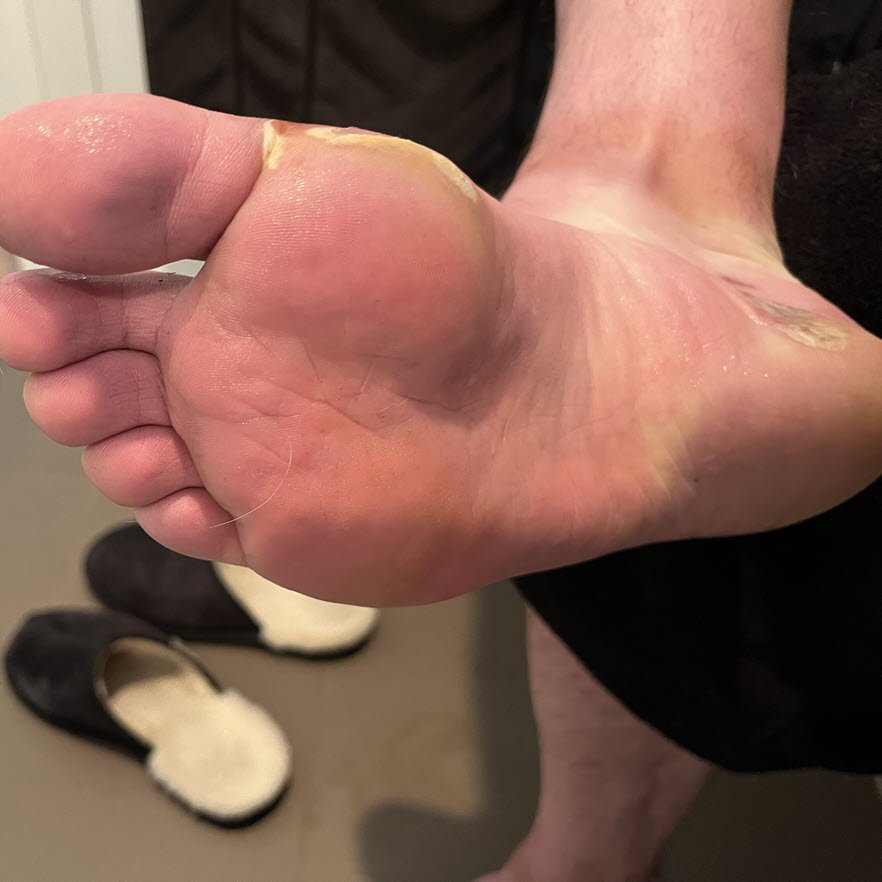Understanding the Root Reasons of Excessive Sweating and Its Effect On Life
Extreme sweating, additionally referred to as hyperhidrosis, is a condition that influences a considerable part of the populace, yet its hidden causes and effects on day-to-day working continue to be somewhat enigmatic. While it is typically understood as a physical response to regulate body temperature level, the triggers for extreme sweating can vary commonly among individuals, including not only physical factors but mental and also emotional elements. The influence of this problem extends beyond mere pain, typically affecting social interactions and overall high quality of life. By diving into the source of hyperhidrosis and exploring its diverse effects, a much deeper understanding of this prevalent issue can be obtained, clarifying the complexities that individuals facing extreme sweating browse daily.
Physiology of Sweat Glands
The policy of sweat manufacturing, a crucial physiological process, is largely managed by the activity of gland dispersed across the body. Gland are classified right into two primary types: eccrine and apocrine glands. Eccrine glands are the most countless and are located in virtually all locations of the body. They play an important duty in thermoregulation by secreting a watery fluid onto the skin's surface, which helps and vaporizes cool down the body down. On the other hand, apocrine glands are focused in areas abundant in hair roots, such as the underarms and groin, and their secretions are thicker and milklike in appearance.
When the body temperature level rises, either because of exercise, heats, or emotional tension, the nerve system triggers the sweat glands to generate sweat. This sweat is made up largely of water and electrolytes like sodium and chloride. The process of sweat manufacturing is essential for maintaining the body's inner temperature within a slim, optimum array, highlighting the important function gland play in human physiology.
Triggers for Excessive Sweating
In recognizing the origin triggers of excessive sweating, it is crucial to recognize the triggers that can lead to this physical reaction. Physical exertion, high temperature levels, and spicy foods are likewise known to cause extreme sweating in individuals vulnerable to this condition.
Furthermore, drugs such as some antidepressants, opioids, and specific supplements can also work as triggers for hyperhidrosis. Comprehending these triggers is essential in taking care of extreme sweating effectively - Sweaty hands treatment. By identifying and resolving the particular triggers that motivate extreme sweating in a specific, doctor can establish personalized therapy strategies to minimize this problem and boost the individual's top quality of life
Medical Conditions Associated
Linked with excessive sweating are different clinical conditions that can worsen this physical reaction. One usual problem is hyperhidrosis, a condition identified by abnormally enhanced sweating that goes beyond the body's thermoregulatory needs. This can manifest in focal locations like the hands, soles, underarms, or face, impacting an individual's lifestyle as a result of social embarrassment and discomfort.
Moreover, endocrine conditions such as hyperthyroidism, diabetes mellitus, and menopausal warm flashes can additionally lead to excessive sweating. Hyperthyroidism causes an overproduction of thyroid hormones, accelerating metabolism and triggering sweating. Diabetes can induce sweating episodes, particularly during hypoglycemic episodes when blood sugar level levels drop too low. Menopausal warm flashes, connected to hormone variations throughout menopause, can trigger intense and sudden sweating, find more info usually come with by flushing and heart palpitations.
Furthermore, infections like tuberculosis, HIV, and endocarditis have been connected with evening sweats, a typical symptom recognized to interrupt sleep and influence general well-being. These clinical conditions highlight the varied series of underlying elements that can add to extreme sweating, necessitating comprehensive analysis and administration by healthcare specialists.
Mental and psychological Aspects

Influence On Social Communications
Extreme sweating can have extensive effects on an individual's capability to involve comfortably in social communications. The visible indications of sweat stains or damp spots on clothes can result in humiliation and self-consciousness, creating people to take out from social situations. This withdrawal can impact partnerships, limitation social tasks, and prevent personal and specialist development.

Additionally, the anxiety and self-esteem issues stemming from excessive sweating can affect communication and social skills. Individuals may have a hard time to concentrate on discussions, take part in group activities, or reveal themselves confidently. This can cause sensations of seclusion and isolation, as social links become challenging to maintain.
Conclusion

While it is typically comprehended as a physiological response to regulate body temperature level, the triggers for too much sweating can differ commonly browse around here among people, incorporating not just physical elements but mental and also emotional components. By diving into the origin creates of hyperhidrosis and exploring its multifaceted results, a much deeper understanding of this pervasive concern can be gotten, dropping light on the complexities that people grappling with extreme sweating navigate on a day-to-day basis.
Physical effort, high temperatures, and spicy foods are additionally understood to trigger too much sweating in individuals prone to this problem. By identifying and addressing the certain triggers that prompt too much sweating in a private, healthcare carriers can establish personalized therapy strategies to minimize this condition and enhance the individual's high quality of life.
Too much sweating can have article source profound results on an individual's capacity to engage pleasantly in social interactions.